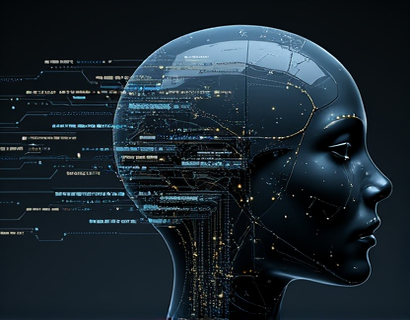AI-Powered Academic Guide: Verified Information and Child-Friendly Learning for Educators and Students
In the rapidly evolving landscape of education, the integration of technology has become paramount. One of the most significant advancements in this realm is the emergence of AI-powered platforms that provide verified academic insights and industry information. These innovative tools are designed not only for educators but also for students, particularly young learners who are just beginning to navigate the academic world. This article explores the benefits of AI-powered academic guides, focusing on their ability to deliver verified information in a child-friendly manner, ensuring safe and engaging learning experiences.
The Role of AI in Education
Artificial Intelligence (AI) has transformed various sectors, and education is no exception. AI technologies can analyze vast amounts of data, identify patterns, and provide personalized learning experiences. In the context of academia, AI can assist students and educators in accessing reliable information, enhancing their understanding of complex subjects, and fostering a more interactive learning environment.
Verified Information: A Necessity in Education
In an age where information is readily available at our fingertips, the challenge lies in discerning credible sources from unreliable ones. Misinformation can lead to confusion and hinder the learning process. AI-powered academic guides address this issue by ensuring that the content provided is verified and accurate. This verification process involves cross-referencing information from reputable sources, thereby instilling confidence in users that the knowledge they are acquiring is trustworthy.
Child-Friendly Learning: Making Education Accessible
One of the standout features of AI-powered academic guides is their ability to present information in a child-friendly format. This is particularly important for young learners who may struggle with complex language or concepts. By simplifying content and using engaging visuals, these platforms create a safe and accessible learning environment. This approach not only aids comprehension but also encourages curiosity and exploration among students.
Empowering Educators and Students
AI-powered academic guides empower both educators and students by providing them with the tools they need to succeed. For educators, these platforms serve as valuable resources for lesson planning, curriculum development, and student assessment. They can quickly access verified information to enhance their teaching methods and provide students with accurate knowledge.
For students, these guides offer a supportive learning companion. Whether they are researching a topic for a school project or seeking clarification on a challenging concept, AI-powered platforms can provide instant assistance. This immediate access to information fosters independent learning and critical thinking skills, essential components of academic success.
Interactive Learning Experiences
Engagement is a crucial factor in effective learning. AI-powered academic guides often incorporate interactive elements that make the learning process more enjoyable. Features such as quizzes, games, and interactive simulations can reinforce concepts and encourage active participation. These interactive experiences not only enhance understanding but also make learning fun, which is particularly important for young learners.
Safe Exploration of Academic Topics
Safety is a primary concern when it comes to online learning, especially for children. AI-powered academic guides prioritize user safety by filtering content to ensure that it is appropriate for young audiences. This includes avoiding sensitive topics and providing age-appropriate language. By creating a safe space for exploration, these platforms allow students to engage with academic content without the risk of encountering harmful or misleading information.
Building Research Skills
Research skills are fundamental to academic success. AI-powered academic guides help students develop these skills by teaching them how to effectively search for information, evaluate sources, and synthesize findings. Through guided interactions, students learn how to ask the right questions and seek out relevant data, preparing them for future academic endeavors.
Collaboration Between Educators and AI
The collaboration between educators and AI technology can lead to enhanced teaching strategies. Educators can leverage AI-powered platforms to identify areas where students may be struggling and tailor their instruction accordingly. By analyzing data on student performance, these platforms can provide insights that help educators make informed decisions about their teaching methods.
Future of AI in Education
The future of AI in education looks promising. As technology continues to advance, we can expect even more sophisticated AI-powered academic guides that offer personalized learning experiences. These platforms will likely incorporate machine learning algorithms that adapt to individual learning styles, providing customized content that meets the unique needs of each student.
Conclusion
AI-powered academic guides represent a significant leap forward in the realm of education. By delivering verified information in a child-friendly format, these platforms empower students and educators alike to explore the academic world with confidence. As we embrace the potential of AI in education, we must continue to prioritize safety, engagement, and the development of critical skills. The integration of AI into the learning process not only enhances educational experiences but also prepares students for a future where technology and knowledge go hand in hand.










































